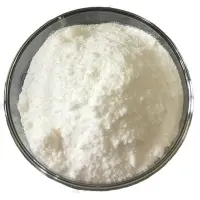-
Categories
-
Pharmaceutical Intermediates
-
Active Pharmaceutical Ingredients
-
Food Additives
- Industrial Coatings
- Agrochemicals
- Dyes and Pigments
- Surfactant
- Flavors and Fragrances
- Chemical Reagents
- Catalyst and Auxiliary
- Natural Products
- Inorganic Chemistry
-
Organic Chemistry
-
Biochemical Engineering
- Analytical Chemistry
-
Cosmetic Ingredient
- Water Treatment Chemical
-
Pharmaceutical Intermediates
Promotion
ECHEMI Mall
Wholesale
Weekly Price
Exhibition
News
-
Trade Service
September 16, 2020 // -- In a recent study published in the international journal Journal of Experimental Medicine, scientists from the University of Tours in France and other institutions found that patients with severe COVID-19 may exhibit changes in a class of unconventional T-cells.
photo source: 2020 Jouan et al. Originally published in Journal of TheInsin. Most people infected with SARS-CoV-2 experience relatively mild symptoms, and some experience abnormal inflammatory reactions that can damage lung health and induce acute respiratory distress syndrome (ARDS), which may lead to death, but the link between the immune cells and inflammatory molecules that trigger ARDS and the occurrence of COVID-19 is not yet clear to researchers.
researcher Christopher Paget says unconventional T-cells are a collection of diverse immune cells that help the body respond to viral infections and are often present in the lungs and other mucous membrane tissues of the body, but researchers still don't know the key role of unconventional T-cells in the pathophysiology of SARS-CoV-2-driven ARDS.
the study, researchers examined 30 PATIENT-19 patients who entered intensive care units and compared immune cells in their blood and lungs with healthy volunteers or patients who entered ICU for non-COVID-19 infection; (MAIT) and constant natural killer cells (iNKT) can significantly decrease in the blood of patients with severe COVID-19, however, the number of MAIT cells increases in the patient's trachea, suggesting that these cells may move from blood to the lungs to control the body's response to SARS-CoV-2 infections.
MAIT and iNKT cells in the body of COVID-19 patients appear to be highly activated and produce different types of inflammatory molecules, and the researchers found that patients with particularly active circulating MAIT and iNKT cells in the body may be less sensitive to hypoxemia when entering the ICU, and are discharged earlier than patients with less active circulating MAIT and iNKT cells in the body.
researchers say MAIT and iNKT cells appear to play a very useful role during severe COVID-19 infections, although their specific functions and mechanisms need to be further studied at a later stage.
The researchers concluded that, however, we will continue to conduct in-depth studies of MAIT and iNKT cells in SARS-CoV-2-induced ARDS patients to assess whether they can be used as new biomarkers to help develop immune intervention strategies.
() Original source: Youenn Jouan, Antoine Guillon, Loïc Gonzalez, et al. Pheno and functional alteration of unconvintional T cells in severe COVID-19 patients, Journal of Experiment Medicine (2020). DOI: 10.1084/jem.20200872.







